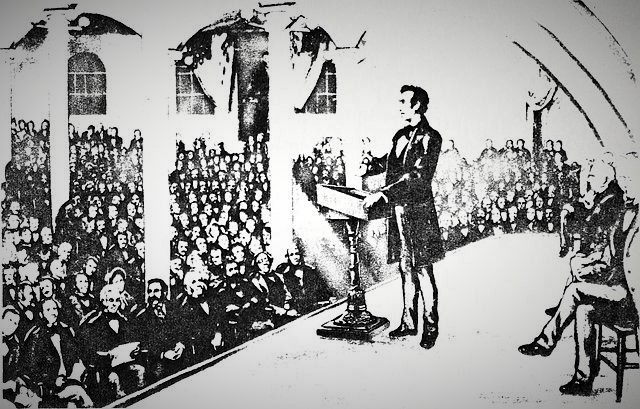About Publications Library Archives
heritagepost.org

Preserving Revolutionary & Civil War History

Preserving Revolutionary & Civil War History

Author: Abraham Lincoln
Date:1862
Annotation:
The United States achieved independence in part because foreign countries such as France and Spain, entered the war against Britain on the American side. The Confederacy, too, hoped for foreign aid. In a bold bid to win European support, the Confederacy sought to win a major victory on northern soil.
In September 1862, Lee launched a daring offensive into Maryland. No one could be sure exactly what Lee planned to do. But in an incredible stroke of luck, a copy of Lee’s battle plan (which had been wrapped around three cigars) fell into the hands of Union General George B. McClellan. After only a brief delay, on September 17, 1862, McClellan forces attacked Lee at Antietam Creek in Maryland.
The Battle of Antietam (which is sometimes referred to as the Battle of Sharpsburg) produced the bloodiest single day of the Civil War. Lee suffered 11,000 casualties; McClellan, 13,000. Lee was forced to retreat, allowing the North to declare the battle a Union victory. But Union forces failed to follow up on their surprise success and decisively defeat Lee’s army.
Lincoln deeply mistrusted McClellan, an obsessively cautious general and a Democrat who bitterly opposed the Emancipation Proclamation and who called Lincoln the “Gorilla.” In the following exchange of letters, Lincoln expresses his anger over the statement of one officer, Major John J. Key, whose brother was a key McClellan adviser, that it was not the objective of the war to crush the Confederate army. Instead, Key implied, the goal was simply to drag the war out until both sides gave up and the Union could be restored with slavery intact. Key was the only officer to be dismissed from service for uttering disloyal sentiments.
Document:
I am informed that in answer to the question “Why was not the rebel army bagged immediately after the battle near Sharpsburg?” propounded to you by Major Levi C. Turner, Judge Advocate &c. you answer “That is not the game.” “The object is that neither army shall get much advantage of the other; that both shall be kept in the field till they are exhausted, when we will make a compromise, and save slavery.”
I shall be very happy if you will, within twenty four hours from the receipt of this, prove to me by Major Turner, that you did not, either literally, or in substance, make the answer stated.
[Lincoln recounted his interview with Major Key on September 27, 1862:]
At about 11 o’clock AM. Sep. 27. 1862. Major Key & Major Turner appear before me. Major Turner says, “As I remember it, the conversation was, I asked the question why we did not bag them after the battle at Sharpsburg? Major Key’s reply was that was not the game, that we should tire the rebels out and ourselves; that was the only way the Union could be preserved, we come together fraternally, and slavery be saved.”
On cross-examination Major Turner says he has frequently heard Major Key converse, in regard to the present troubles, and never heard him utter a sentiment unfavorable to the maintenance of the Union. He has never uttered anything which he Maj. T would call disloyalty.
[After the interview, Lincoln wrote:]
In my view it is wholly inadmissable [sic] for any gentleman holding a military commission from the United States to utter such sentiments as Major Key is within proven to have done. Therefore let Major John J. Key, be forthwith dismissed form the Military service of the United States.
[On November 24, 1862, Lincoln wrote directly to Key (GLC 496.045):]
I sincerely sympathize with you in the death of your brave and noble son.
In regard to my dismissal of yourself from the military service, it seem to me you misunderstand me. I did not charge, or intend to charge you with disloyalty. I had been brought to fear that there was a class of officers in the army, not very inconsiderable in numbers, who were playing a game to not beat the enemy when they could, on some peculiar notion as to the proper way of saving the Union; and when you were proved to me, in your own presence to have avowed yourself to be in favor of that “game” and did not attempt to controvert the proof, I dismissed you as an example, and a warning, to that supposed class. I bear you no ill will; and I regret that I could not have the example without wounding you personally. But can I now, in view of the public interest, restore you to the service, by which the army would understand that I indorse, and approve that game myself? If there was any doubt of your having made the avowal, the case would be different. But when it was proved to me, in your presence, you did not deny or attempt to deny it, but confirmed in my mind by attempting to sustain the position by argument.
I am really sorry for the pain this case gives you, but I do not see how, consistently with duty, I can change it.
Source: Gilder Lehrman Institute
Additional information: Abraham Lincoln to Major John J. Key